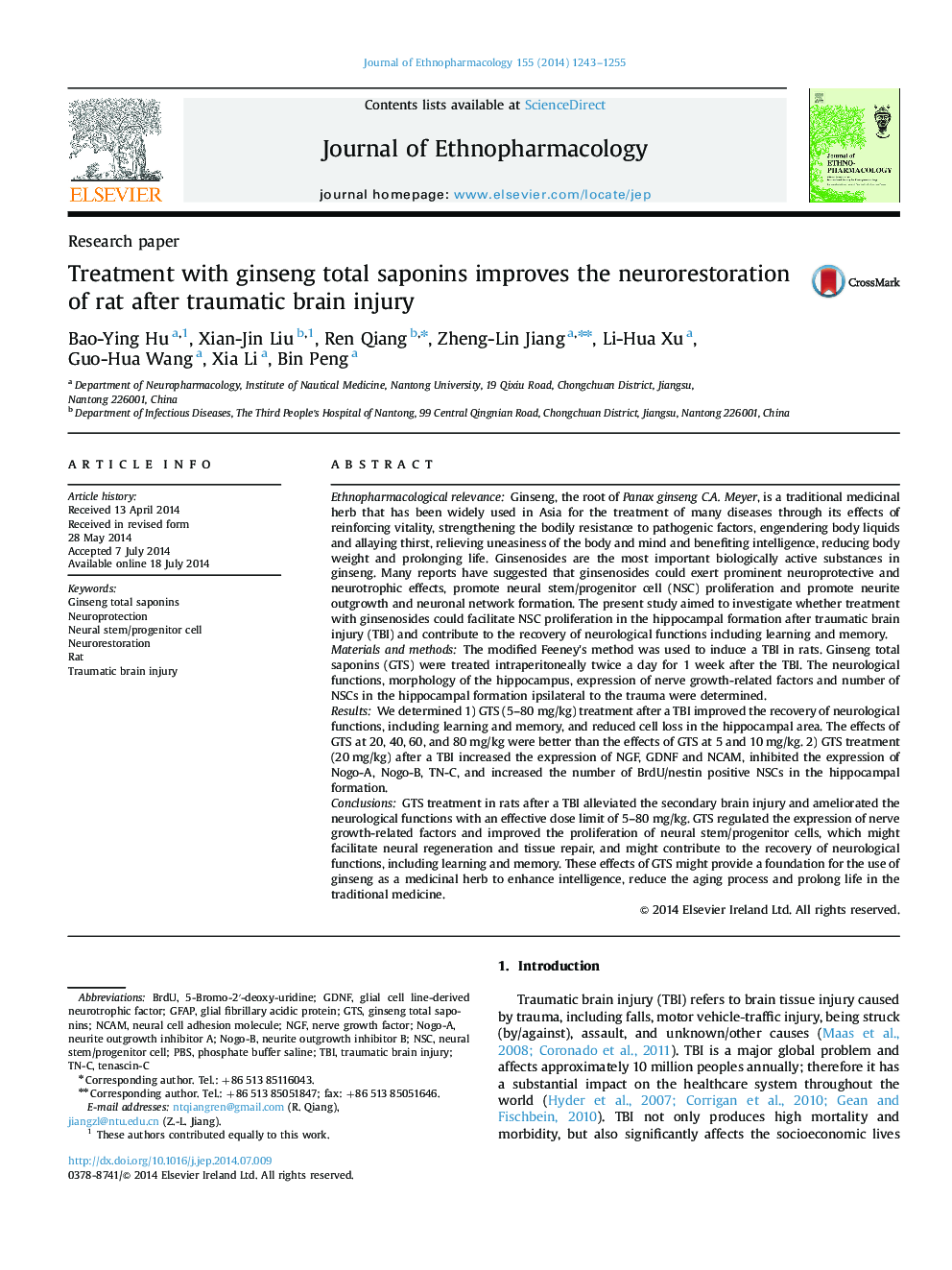| Article ID | Journal | Published Year | Pages | File Type |
|---|---|---|---|---|
| 5836114 | Journal of Ethnopharmacology | 2014 | 13 Pages |
Ethnopharmacological relevanceGinseng, the root of Panax ginseng C.A. Meyer, is a traditional medicinal herb that has been widely used in Asia for the treatment of many diseases through its effects of reinforcing vitality, strengthening the bodily resistance to pathogenic factors, engendering body liquids and allaying thirst, relieving uneasiness of the body and mind and benefiting intelligence, reducing body weight and prolonging life. Ginsenosides are the most important biologically active substances in ginseng. Many reports have suggested that ginsenosides could exert prominent neuroprotective and neurotrophic effects, promote neural stem/progenitor cell (NSC) proliferation and promote neurite outgrowth and neuronal network formation. The present study aimed to investigate whether treatment with ginsenosides could facilitate NSC proliferation in the hippocampal formation after traumatic brain injury (TBI) and contribute to the recovery of neurological functions including learning and memory.Materials and methodsThe modified Feeney׳s method was used to induce a TBI in rats. Ginseng total saponins (GTS) were treated intraperitoneally twice a day for 1 week after the TBI. The neurological functions, morphology of the hippocampus, expression of nerve growth-related factors and number of NSCs in the hippocampal formation ipsilateral to the trauma were determined.ResultsWe determined 1) GTS (5-80 mg/kg) treatment after a TBI improved the recovery of neurological functions, including learning and memory, and reduced cell loss in the hippocampal area. The effects of GTS at 20, 40, 60, and 80 mg/kg were better than the effects of GTS at 5 and 10 mg/kg. 2) GTS treatment (20 mg/kg) after a TBI increased the expression of NGF, GDNF and NCAM, inhibited the expression of Nogo-A, Nogo-B, TN-C, and increased the number of BrdU/nestin positive NSCs in the hippocampal formation.ConclusionsGTS treatment in rats after a TBI alleviated the secondary brain injury and ameliorated the neurological functions with an effective dose limit of 5-80 mg/kg. GTS regulated the expression of nerve growth-related factors and improved the proliferation of neural stem/progenitor cells, which might facilitate neural regeneration and tissue repair, and might contribute to the recovery of neurological functions, including learning and memory. These effects of GTS might provide a foundation for the use of ginseng as a medicinal herb to enhance intelligence, reduce the aging process and prolong life in the traditional medicine.
Graphical abstractDownload high-res image (92KB)Download full-size image
